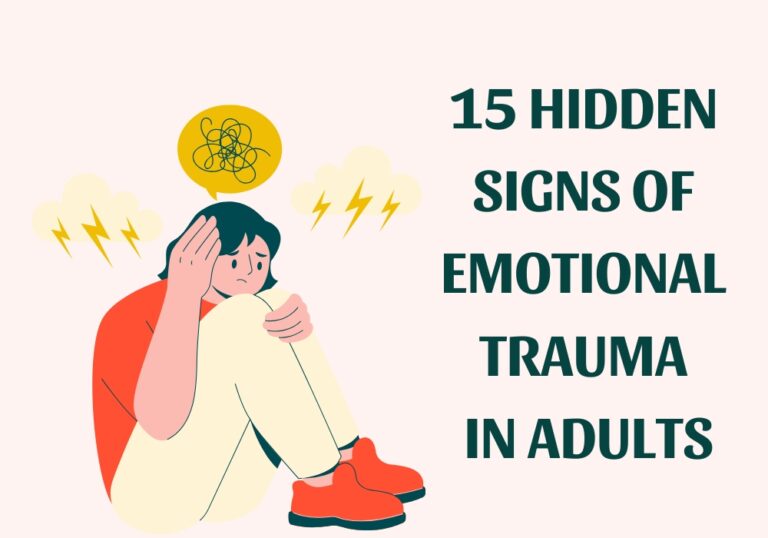How Letting Go Of The Past Should Be Down?

Letting go of the past is not always an easy thing to do, may be easier for some, but harder for others. Unfortunately, everyone faces complex challenges and situations in life that can make it hard to let go and move forward. This is especially true if intense pain, trauma, or embarrassment continues to haunt you.
Letting go of painful memories can be difficult. Some moments in life can feel as though they are permanently etched in one’s mind, without any clear way to erase them.
The emotions can be so intense that one feels trapped holding onto the past. This leads to a cycle of rumination that is difficult to break.
It is essential to let go of the past if you want to achieve the most in your life. To truly move on, it is necessary to adopt the right attitude and depending on the circumstances, accept yourself and/or forgive others.
It’s important to learn how to move on from past experiences that are still affecting your current life. However, letting go of the past is beneficial for your well-being and is crucial if you want to get the most out of your life.
24 Tips For Letting Go Of The Past:
1-Realize and accept your feelings:
No matter how long ago something in the past happened, it is important to acknowledge and process the emotions attached to it. Even if your reaction to these feelings may seem invalid, the emotions themselves are real and should not be buried. To move on, it is crucial to stop suppressing these emotions. So the first step to letting go of the past is to fully accept what caused you pain and allow yourself to feel those emotions completely.
2-Stop making the past alive:
We have all experienced pain. It is unfortunate and can be embarrassing, but nobody wants to appear weak. As a result, many of us construct an idealized version of the past and place blame on others rather than taking responsibility for what occurred.
All things in life have both a beginning and an end. There is no need to continuously revisit the past to keep it alive. It is important to make peace with the end, particularly if it was unsightly, and proceed.
3-Don’t let your problems define you :
When one becomes entrenched in a problem, it becomes difficult to extricate oneself from it and disassociate the problem from one’s sense of self. Your stories form you, but they do not have to define you. Do not let a negative experience become part of your identity. Instead, focus on the present and create space for new experiences.
4-Meditate or pray:
When dealing with the emotional responses that arise from past stressors, it is important to maintain a calm and balanced mind. Through the practice of meditation or prayer, you can center yourself and create a stable foundation for letting go of the past.
Related: How Meditation Will Change Your Life?
5-Forgive yourself and others:
Hiding a painful past can be a tempting choice, but it’s important to acknowledge it. Fighting your past can be emotionally exhausting. You know what? It’s okay to make mistakes. Don’t beat yourself up over it. Forgive yourself and others instead of judging, and see how much better you feel.
6-Star journaling:
Journaling and other forms of writing may prove to be valuable tools when it comes to reconciling with your past and making progress. Try composing about the things that trouble and hurt you, or that you believe are holding you back. Writing for oneself can be cathartic and confidence-building. There is no need to fear the thoughts or opinions of others when writing solely for personal expression.
Related:10 Tips to start Journaling and make it a Habit
Related: 2025 Ultimate Life Planner Pro

7- Don’t fear failure:
Nobody can succeed in everything all the time. If your past has created fear about a certain circumstance or aspect of life, make a concerted effort to confront that fear and overcome it.
When things don’t go as planned, it is vital to remember that failure can be a valuable learning experience that can be used to improve future outcomes.
Related: 10 Tips to overcome fear and become unstoppable
Related: Why Is Failure Important in Life? 10 Valuable Lessons
8-Don’t Forget Your Morals and Values:
If you want to do better in life, you need to stay true to your morals and values. Hard times can cause changes, but they’re not always for the best.
To develop self-esteem and pride, it is important to stick to one’s beliefs and morals. This plays a big role in cultivating a positive attitude toward life.
9-Don’t place blame:
Blaming others for your problems might seem like the easy way out, but it’s not a solution. The best thing to do is to acknowledge the problem and move on, focusing on finding a way to fix it.
10-Let Go of Anger and Resentment:
The emotions of anger and resentment are detrimental and toxic. These feelings can keep you attached to the past. They can bring you down and harm you more and more.
Releasing anger and resentment can have a positive impact on your attitude. It is important to find healthy ways to express your emotions, such as punching a pillow or screaming … etc. Although it may take time, you will feel refreshed once you let off these negative emotions.
Related: How to accept negative emotions?
Related: Anger management:10 ways to tame your mood
11-Let go of regrets:
Let go of regrets by acknowledging that you did the best you could with the knowledge and resources you had at that time. Use your mistakes as stepping stones and as opportunities for personal growth and learn from them.
12-Accept that the other person may not apologize:
It may be detrimental to wait for an apology from the person who caused you harm, as this can hinder the process of healing. Instead, focus on taking care of your emotional well-being and come to terms with the fact that an apology may not be given.
13-Immersing into what you’re passionate about:
Diving into what motivates you is an effective way to move on. When you are engaged in what brings you joy, there’s no time or space for negativity of the past.
if you want to pave the way for a bright future, it is essential to engage in positive activities and allocate time to them. Allocating time for this purpose will ensure that you remain in charge.
Related: How To Find Your Passion?
Related: Why do I never feel passionate about anything?
14-Find perspective and see the bigger picture:
It may be beneficial to analyze your past experiences in a different light. Perhaps you lacked the knowledge to make better decisions regarding negative experiences. However, it is important to keep in mind that you have gained a better understanding of these experiences and have improved upon them. There is a chance that your current situation could have been different if your past circumstances were different as well. Changing your perspective in this way can be a useful tool in letting go of the past.
15-Do your best:
Don’t let your past hold you back. Use it as a stepping stone to something greater.
Maybe you have made some mistakes, but now you have the chance to learn from them and grow as a person and make a commitment to never make those same mistakes again and strive for greatness.
16-Face your circumstances:
In certain circumstances, it can be beneficial to confront one’s past head-on. One might consider returning to the site of negative experiences and generating a new, affirmative recollection there. Create a new positive memory in this location by engaging in a new activity or simply taking a moment to reflect and meditate and attain a sense of inner peace. By doing so, you may be able to view past events with greater acceptance and peace.
17-Let go of being the hero or the victim:
When we look back on our past, it’s easy to fall into the trap of seeing ourselves as either the hero or the victim. But this can prevent us from moving on and finding peace. Instead, try to focus on the facts of what happened and let go of any emotional attachment to the past.
Related: Victim Mentality: Signs, Causes, and 12 Ways to overcome it
18-Be patient :
Letting go of the past is not a task that can be easily completed. It is a complex process that requires time and patience. At times, assistance may be necessary, particularly when dealing with trauma or mental health concerns. just be patient and take baby steps to get where you want to go.
19-Practice self-care and self-love:
By loving and respecting oneself more, it becomes simpler to make difficult decisions about letting go. Get into good habits, focus on the positive, invest in experiences that make you feel good, and create supportive daily routines.
Related:20 Ways to Practice Self-Love and Be More Confident
20-Creating Healthy Boundaries:
To achieve emotional well-being, it is essential to establish healthy boundaries. These boundaries refer to the limits and expectations that individuals impose on themselves and others to safeguard their mental, physical, and emotional health.
But remember, boundaries can be flexible and should be adjusted as your needs change.
It can be difficult to establish and maintain boundaries, but it is essential to communicate them effectively. When setting boundaries, it is crucial to be firm yet compassionate to defend yourself without alienating others.
Creating and maintaining healthy boundaries is essential for ensuring respect and safety for oneself, while also honoring the needs and rights of others. Establishing boundaries can lead to healthier relationships with oneself and those in one’s surroundings.
21-Surround Yourself with Uplifting People:
The people with whom we surround ourselves have a significant impact on our lives. To enhance our lives, we should attempt to surround ourselves with those who inspire us and reduce our interaction with people who bring us down, including family and close friends. Although this is not always feasible, it is essential to prioritize our time with those who uplift us.
22-Exercise every day:
Getting regular exercise is not only good for your physical health, but it can also improve your emotional and mental well-being. Studies have shown that exercise helps release endorphins such as dopamine, which are associated with feelings of happiness. To improve your mood, it is recommended to start with 15 minutes of exercise per day and gradually increase it to 30 minutes.
Related:25 Simple Ways to Boost Your Mood
23-Let Go of Perfectionism:
Perfectionism is a common barrier to letting go of the past. Holding ourselves to unrealistic standards can lead to a cycle of self-criticism and self-doubt.
When it comes to living a happier life, it is important to remember that mistakes are a natural part of the journey, and we do not need to be perfect to find joy and fulfillment. Instead of fixating on perfection, focus on making progress and growing as an individual. Take pride in even the smallest accomplishments, and be kind and patient with yourself when things do not go according to plan.
Related:10 Ways to Overcome Perfectionism
24-Seek Support:
Addressing past experiences can be a challenging and emotional task, and it is essential to have a support system in place. Whether it is a trusted friend, a family member, or a professional therapist, opening up about your feelings can help you gain new perspectives and insights. A supportive listener can also offer validation and empathy, which can be extremely healing.








